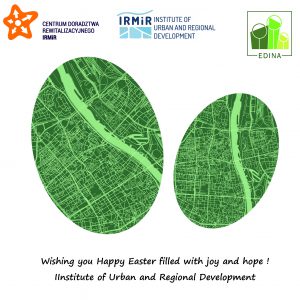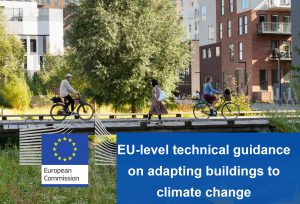REHVA is The Federation of European Heating, Ventilation, and Air Conditioning associations founded in 1963. We are an umbrella organization that represents over 120,000 HVAC designers, building services engineers, technicians, and experts across 26 European Countries.
REHVA provides its members a strong platform for international professional networking, and knowledge exchange pursuing the vision of improving health, comfort, safety, and energy efficiency in all buildings and communities. REHVA contributes to technical and professional development, follows EU policy developments, and represents the interest of its members at EU level and globally.
We invite you to read the report from the web event powered by REHVA entitled „People-Centred Energy Performance Certificates for Buildings” exactly on „What do people actually think about Energy Performance Certificates for buildings” on the REHVA article page: https://www.rehva.eu/rehva-journal/chapter/people-centred-energy-performance-certificates-for-buildings
In the workshop event powered by REHVA were involved experts and researchers from BEUC – the European Consumer Organisation – and seven Horizon 2020 sister projects of the Next Generation EPCertificates cluster to exchange their thoughts on people-centred EPCs.
„BEUC sees the need for EPCs to guide users towards both easily attainable energy renovation goals, affordable also for low-income households, as well as more advanced options, that require higher investments but also bring higher long-term returns. Presentation of data and information should be easy to read and understand for anyone – consumers, installers, experts, and public authority representatives alike. In addition, EPCs should enable (and prompt) people to act in a timely and informed manner, both from the technical and financial point of view. EPCs should be a solid reference for meaningful comparison of costs related to energy use (and management) as well as costs related to energy renovation measures, in their locally specific market context”.
The meeting thus continued with a series of presentations by the Next Generation EPCertificates cluster – U-CERT, QualDeEPC, X-tendo, ePANACEA, EPC RECAST, D^2EPC, and E-DYCE. Although each project has its own particular focus and approach to improving the existing EPC schemes, they share a number of goals and principles:
- User-friendliness of EPC related products and services,
- Support decision making for energy renovations,
- Innovation in the area of indicators and data handling/use (comfort, sustainability, Smart Readiness, financial etc.),
- Enhancement of EPC assessment, certification, and verification,
- Exchange of knowledge and experiences,
- Improved links between EPCs and (deep) energy renovation planning,
- Enhanced quality and reliability of EPCs,
- Economic feasibility of EPC schemes,
- Development in direction of dynamic and responsive EPCs,
- Compatibility and comparability of EPCs in the wide EU framework based on the EPB standards (M/480 mandate),
- Enhanced interaction between people and the built environment for conscious building use and management,
- Support to assessors and issuers (training, tools, methodologies etc.),
- Compliance and comparability based on international standards, etc.
- Improvement of rules, standards for building renovation,
- Online tools conected with guidelines on deep energy refurbishment,
- Creation of a platform (network) on topics related to the deep renovation of buildings,
- Effective EPCs promotion, for example in property advertisements providing specific data,
- Adaptation to changing conditions and trends in the energy sector,
- Use of the latest methods, tools and technologies for EPCs in a real environment,
- Adaptation of standards and guidelines to EU legislation and national and internal political regulations,
- Achieving the common goal to reduce carbon dioxide emissions.
Studies on the needs of users, managers of buildings, and public authorities have shown a perception of EPCs as information set on:
- Smart-Readiness
- Comfort
- Outdoor air pollution
- Real Energy Consumption
- District Energy
- EPC Databases
- Building Logbook
- Tailored recommendations
- Financing options
- One-Stop-Shop
Summarising, Energy Performance of Buildings Certificates (EPCs) should primarily be a tool to make buildings more pleasant, healthier to live in, energy-efficient, and climate neutral in the long term.




